
My Goliath stick insect just shed and turned green two days ago. She is very beautiful now, so I
Goliath Stick Insect, Eurycnema goliath Goliath Stick Insects are one of Australia's largest and most spectacular phasmids. The heavy-bodied females grow to a length of 200mm, and have well developed wings which they extend rapidly to startle and deter predators. They have a very interesting reproductive cycle, beginning with the eggs being

Goliath stick insect — THE INSECTORY
Diet The goliath stick insect is folivorous, and in the wild primarily feeds on the leaves of the Acacia and Eucalyptus species they inhabit. In captivity, the insect has been recorded eating a wider range of foods, such as leaves from Bramble, Oak, Pyracantha and Hawthorn species. Adult insects are said to eat approximately 10 medium-sized.
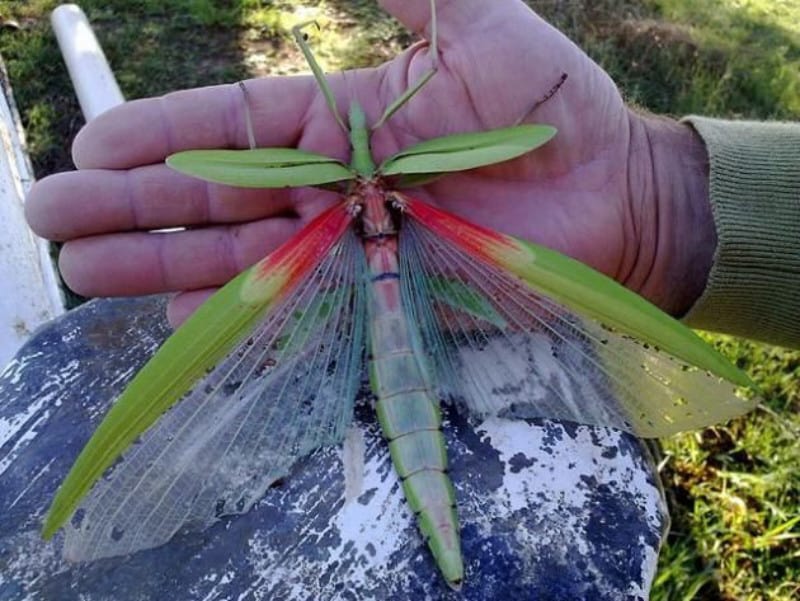
Goliath Stick Insect l Breathtaking Our Breathing
The Goliath has two pairs of bright green wings with red markings underneath. Adults change from brown to green at 10 -12 months of age. The female Goliath is probably our heaviest stick insect in Australia. Goliath stick insects can be found throughout Northern Australia, into New South Wales and Victoria and also in Western Australia. HOUSING
This ? Stick bug I just found..... Bit unwell, hence his calmness. Any one know it's official
Goliath Stick Insect. Eurycnema goliath. One of the largest species of stick insect in Australia with females growing over 200mm. These insects make spectacular display animals due to their impressive size and vivid green and gold markings. Males have similar colour and patterning but are smaller, have wings and are capable of flight.
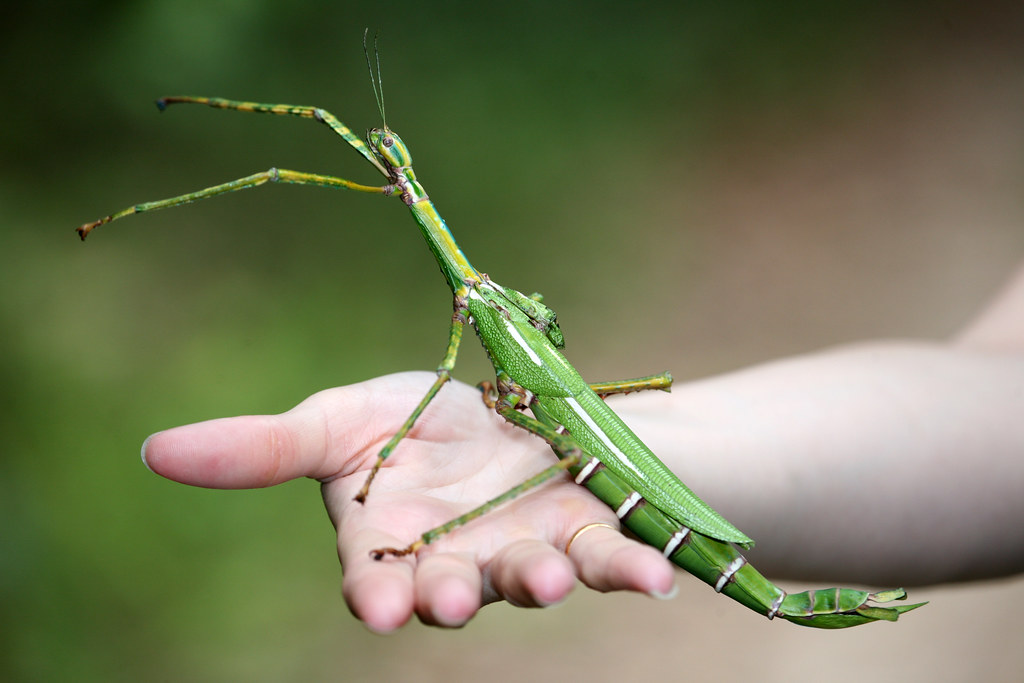
Goliath Stick Insect (Eurycnema goliath), Iluka Rainforest… Flickr
Those species known strictly as leaf insects are only found in northern Queensland. Eurycnema goliath is a conspicuous, heavily built species known as the Goliath stick insect and can be found over much of northern Australia and down the east coast as far as Victoria. Females of this species are fully winged and known to grow up to 25.

Bug Pictures Goliath Stick Insect (Eurycnema goliath) by kennedyh
The goliath stick insect is a common sight in zoos and laboratories. Enclosure: 35.4 inches high, 15.74 inches deep, and 17.71 inches wide, preferably with a roof of mesh and walls of glass. Temperature: A heat lamp and a thermostat should be present to ensure that the enclosure remains slightly above room temperature.

10 Weird Insects found in Australia Western AllPest Services Pest Control Specialist in
The Goliath Stick Insect needs an enclosure with a lot of ventilation, therefore at least two walls should be made out of mesh. Enclosures with only glass or plastic walls keep the humidity inside and the air is just standing. Only the Eurycnema Goliath nymphs right after their hatch need slightly higher humidity.

The beauty of Goliath stick insect (Eurycnema goliath). The third largest stick insect in
The Goliath stick bug, scientifically known as Eurycnema goliath, is a prime example of the mesmerizing diversity of stick insects. It hails from the Phasmatodea order, a group renowned for their remarkable camouflage abilities and elongated bodies that mimic twigs or branches. However, what sets the Goliath stick bug apart is its sheer size.
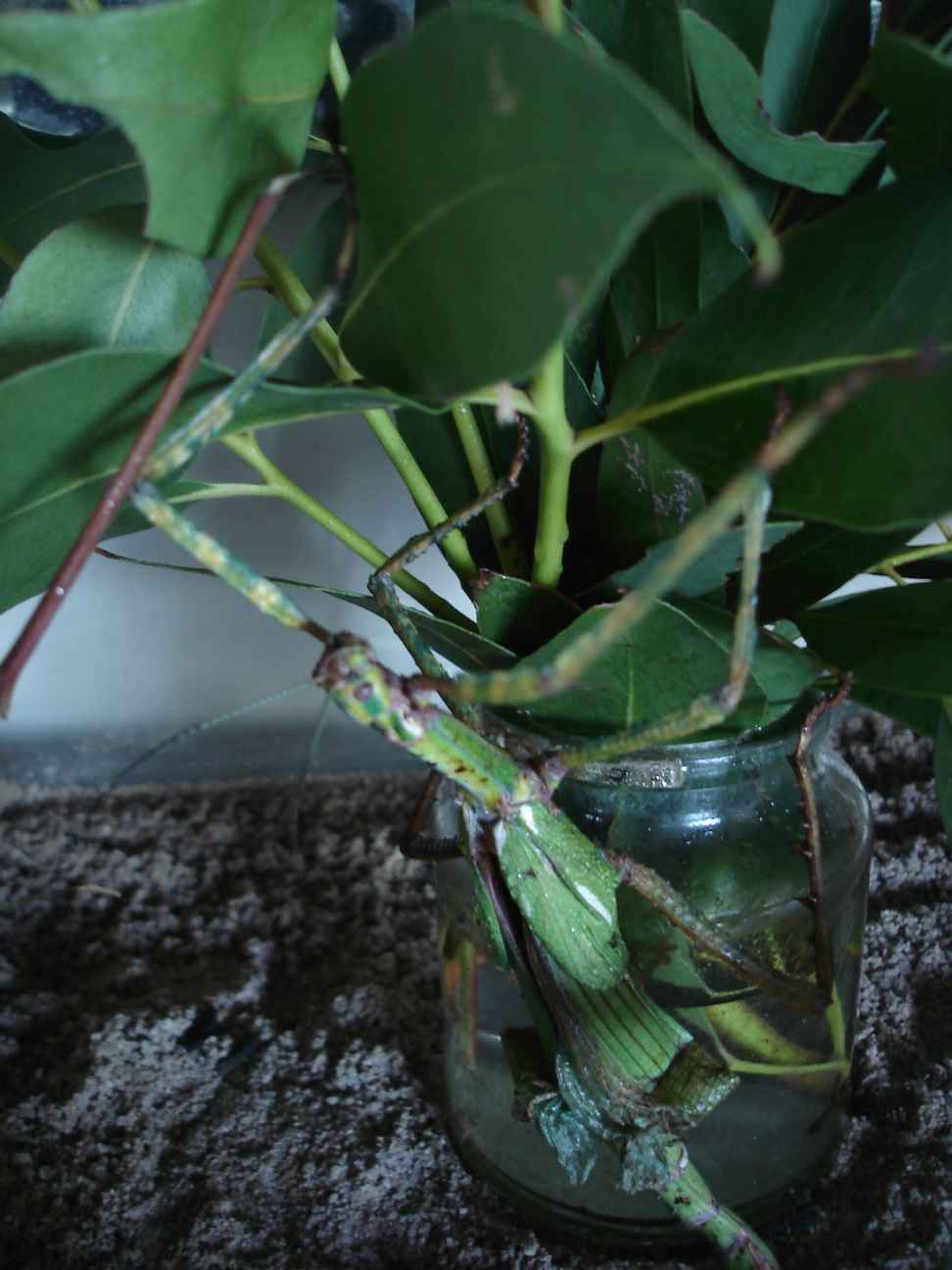
Scatterbrain Goliath stick insect comes to visit for the holidays
The Goliath stick insect is a robust, bright green phasmid with yellow patches on the head, legs and thorax. Their bodies can reach up to 25cm in length. The Goliath has two pairs of bright green wings with red markings underneath. The female Goliath is probably our heaviest stick insect in Australia. Goliath stick insects can be found.
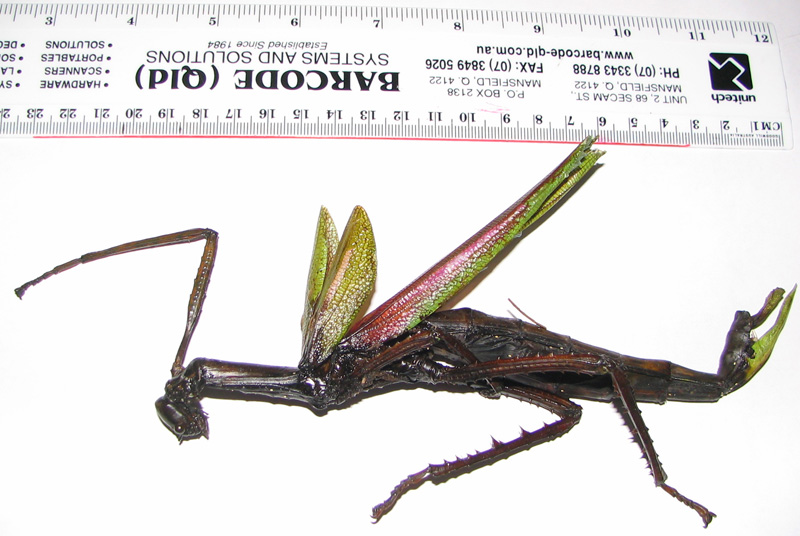
Goliath Stick Insect found dead in Australia What's That Bug?
INSECT FACTS: Identification The Goliath Stick Insect is one of Australia's largest phasmids. It is green with some yellowish patches on the head, thorax and legs. The wings are green with red markings on the underside. underneath. Both adults and nymphs are well camouflaged.

Goliath Stick Insect (Eurycnema goliath) in the Wild YouTube
Goliath Stick Insect Facts Most notably, the truly remarkable Goliath Stick Insect bears a common name that's completely appropriate for it. The magnificent insect also bears the somewhat cumbersome scientific name of Eurycnema goliath. But by either name, it presently ranks as the second largest known variety of stick insect in its entire region of the globe. Furthermore, the awesomeness of.

"Goliath Stick Insect" by EnviroKey Redbubble
Eurycnema goliath, the Goliath stick insect, is one of the largest stick insects in Australia. The first instar of a nymph is small, brown, and ant-like, without wings, however the adult insects are green and yellow, though colors can slightly vary, are very large, and have wings.

Goliath Stick Insect
Goliath Stick Insect - short on legs Location: Boodjamulla National Park, Queensland, Australia October 13, 2010 7:06 am Hi, this is just to enjoy: attached a couple of pics of a beautiful Goliath Stick Insect, taken 19.04.2010 in Boodjamulla National Park, Queensland, Australia.

Eurycnema Goliath (Goliath Stick Insect) Care Sheet
Goliath stick insects are covered green across much of their body. They have blue spots and pink stripes on their chest and thorax. Their coloration provides highly successful camouflage against the trees in their forested habitats. On either side of the body are three legs for a total of six. Small hooks are present at the end of each foot to.

Scatterbrain Goliath stick insect comes to visit for the holidays
The Goliath Stick Insect pictured on Brisbane Insects has very short antennae. According to Oz Animals, "The Crown Stick Insect is found in coastal Queensland and the Northern Territory" and it also appears to have short antennae. Titan Stick Insect images on FlickR also have short antennae.
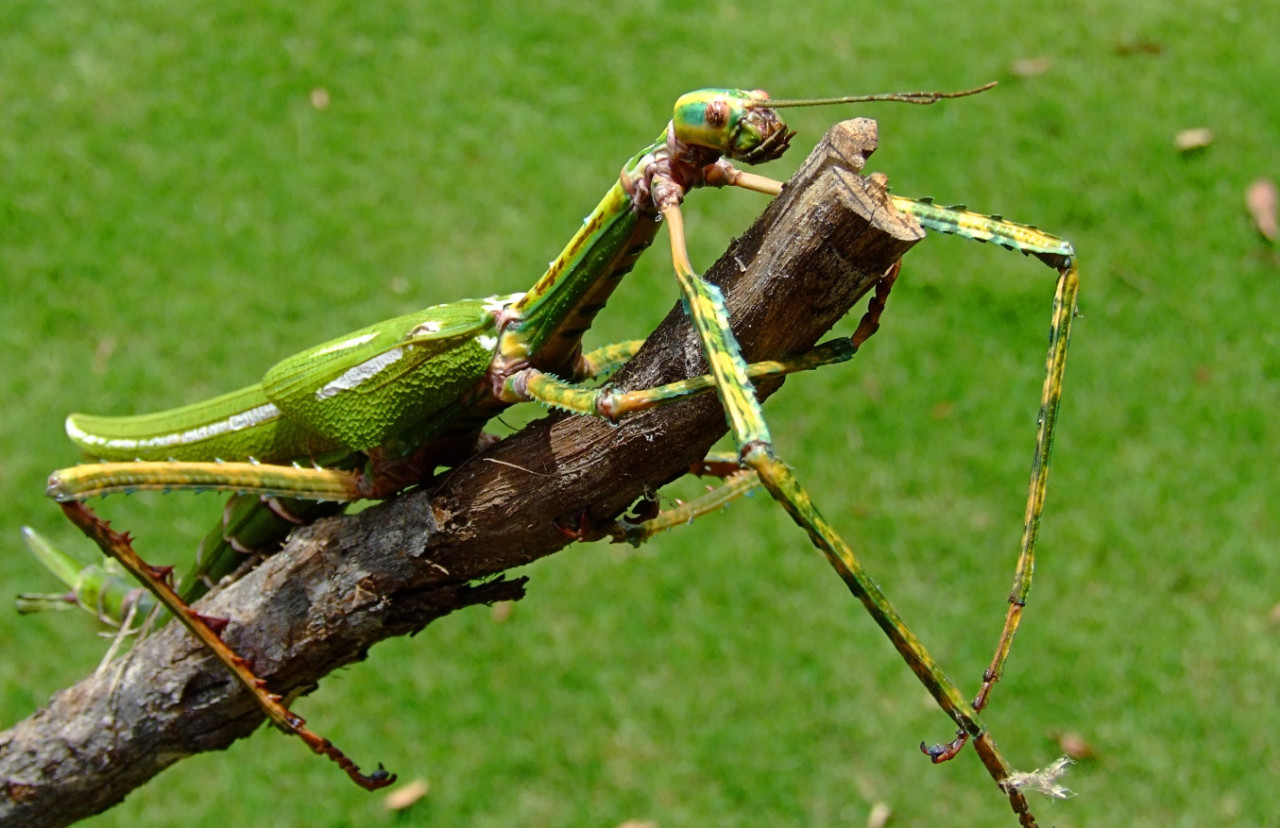
Let's do Some Zoology! Goliath Stick Insect (Eurycnema goliath) …a large...
Goliath Stick Insect (Eurycnema goliath)The colourful underside of the wings and body are a warning to predators that this insect is potentially poisonous to.